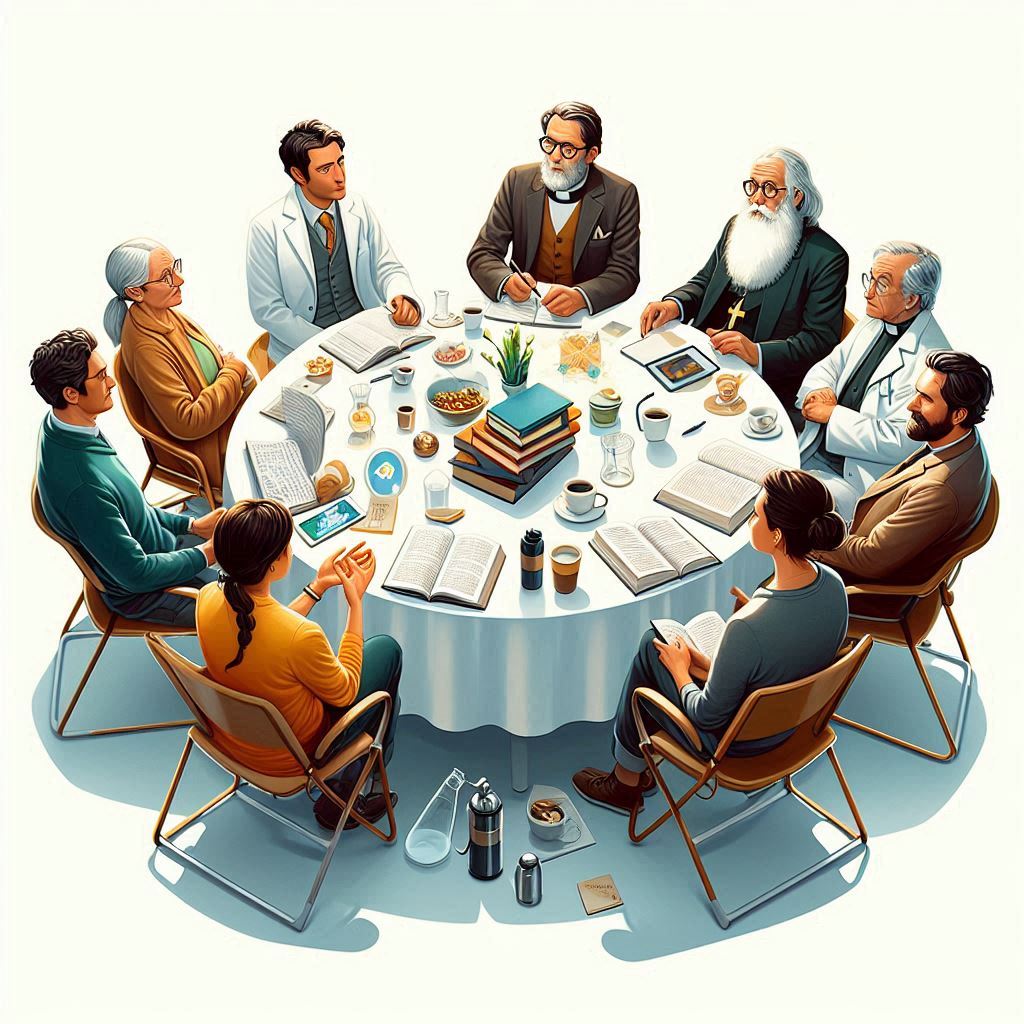In the vast world of scientific inquiry, the journey from atheism to theism is a fascinating one. It challenges the notion that science and religion are inherently opposed. Here, we delve into the stories of renowned scientists who transitioned from disbelief to belief, illustrating how the pursuit of knowledge can sometimes lead to spiritual enlightenment.
- Antony Flew (1923-2010):
- Field: Philosophy, particularly philosophy of religion.
- Journey: Flew was a prominent atheist philosopher who argued against the existence of God for much of his career. In 2004, he announced that he had become a deist, stating that his study of the complexities of life and the universe led him to conclude that some form of intelligence must be behind their creation. He detailed his change in belief in his book There Is a God: How the World’s Most Notorious Atheist Changed His Mind.
- Francis Collins (b. 1950):
- Field: Genetics, Director of the National Institutes of Health (NIH).
- Journey: Collins was raised without strong religious beliefs and considered himself an atheist in his youth. His experiences as a medical doctor, particularly his encounters with seriously ill patients who maintained strong faith, led him to explore Christianity. He later converted to Christianity and wrote about his journey in The Language of God: A Scientist Presents Evidence for Belief.
- Allan Sandage (1926-2010):
- Field: Astronomy.
- Journey: Sandage was an atheist early in his career but later became a Christian. He stated that science alone could not provide answers to all of life’s questions, particularly those about meaning and purpose. His study of cosmology and the origins of the universe influenced his belief in a higher power.
- Alister McGrath (b. 1953):
- Field: Biochemistry (initially), Theology.
- Journey: McGrath was an atheist during his early years as a scientist. His study of the natural world and philosophical questions about existence led him to Christianity. He has written extensively on the relationship between science and faith, including in his book The Dawkins Delusion? Atheist Fundamentalism and the Denial of the Divine.
- Fred Hoyle (1915-2001):
- Field: Astronomy.
- Journey: Hoyle was initially an atheist and a staunch critic of religion. However, his work in cosmology and the fine-tuning of the universe led him to adopt a belief in some form of intelligence behind the universe’s creation, though his exact religious beliefs were not strictly theistic in a traditional sense.
- Alexander Vilenkin (b. 1949):
- Field: Cosmology.
- Journey: Vilenkin was a Soviet-born atheist who explored the origins of the universe. While he doesn’t identify with a specific religion, his work on the concept of the universe having a beginning led him to contemplate the possibility of a transcendent cause, which opened him to the idea of some form of higher power.
- John Polkinghorne (1930-2021):
- Field: Theoretical Physics.
- Journey: Polkinghorne was an atheist during his early academic career. He later became a Christian and was ordained as an Anglican priest. His scientific work and theological studies led him to write extensively on the harmony between science and religion, including books like Belief in God in an Age of Science.
- S. Jocelyn Bell Burnell (b. 1943):
- Field: Astrophysics.
- Journey: Bell Burnell, known for discovering pulsars, grew up in a Quaker family but had an agnostic period. She returned to her faith, finding that her scientific understanding of the universe complemented rather than contradicted her spiritual beliefs.
- Ard Louis:
- Field: Theoretical Physics.
- Journey: Louis, originally from the Netherlands, was raised in a secular environment but converted to Christianity during his time at university. He is now a prominent voice in discussions about the relationship between science and faith.
- Gerald Schroeder (b. 1937):
- Field: Physics and Earth Sciences.
- Journey: Schroeder was initially an atheist but later became a devout Jew. He integrates his scientific background with his religious beliefs, writing books such as The Science of God that discuss the harmony between scientific discoveries and biblical teachings.
- Richard Smalley (1943-2005):
- Field: Chemistry, Nobel Laureate.
- Journey: Smalley, known for his work on buckyballs, was an atheist for most of his life. In his later years, he became a Christian, citing his studies in chemistry and physics as leading him to believe in a divine creator.
- Sy Garte:
- Field: Biochemistry.
- Journey: Garte was raised as an atheist in a staunchly secular environment. His journey to faith was gradual, influenced by his scientific work and the realization that science alone could not answer all existential questions. He discusses this in his book The Works of His Hands: A Scientist’s Journey from Atheism to Faith.
The stories of these scientists show that the journey from atheism to theism is deeply personal and multifaceted. It often involves a combination of professional insights, personal experiences, and philosophical inquiries. These narratives highlight that the pursuit of scientific knowledge can coexist with and even lead to a deeper spiritual understanding. Science and faith, rather than being mutually exclusive, can together provide a more comprehensive understanding of the universe and our place within it.
